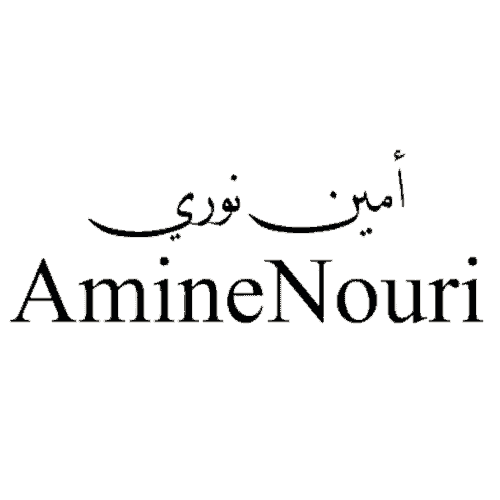
带有助动词的缩写
Contractions with model verbs
在本课中,您将学习英语中的助动词及带有助动词的缩写。这些内容的掌握,更能帮助您拥有像英语母语者一样的发音。
英语学习不仅需要学习和练习英语语法,同时你也必须开始学习和练习正确的英语发音技巧,您可以从我为您准备的五节课开始。
这五节课都使用了模仿法,可以加速您的英语发音的提高。您只需要在这里注册,我将通过电子邮件发送给您您的第一节课。在第一节课中,我将解释模仿法并教授正确的发音,您的英语学习之旅将从这里开始。
带有助动词的缩写。
亲爱的同学,您好,我是 Amine Nouri 欢迎再次来到我们新的一课。如您所知,我在所有课程的背后都有一个目标,那就是让您自信而流利地讲英语。
在本课中,您将学习英语中带有助动词的缩写词。
您可以单击此处更深入地查看助动词
但在我们今天的课程中,我们将讨论一般的缩写,特别是带有助动词的缩写;掌握这些首字母缩略词将使您的发音听起来更自然流畅。
让我们开始吧:
以英语为母语的人在单词中使用缩写是为了快速流畅地说话,
您能像母语为英语的人一样自然地发音以下单词吗?
Could have, may have, you would, you would not have.
缩写经常与助动词 (modal verbs) 一起使用,希望您能和我一起探讨我们将在本课中一起看到的所有单词。助动词有:
Would
Should
Could
Might
Will
Shall
Can
May
Must
请注意,在单词:could、would、should 中,字母 L 不发音。
正如我们在上一课中所说的:我们可以使用助动词表达过去时,方法是在句子中的主动词(过去分词形式)上加上助动词 have 然后加上宾语名词。
过去分词 = past participle
主动词 = main verb
have的缩写是`ve。例如,在下面的句子中我们要表达过去;
助动词 = would
动词有缩写 = `ve
主动词的过去分词形式 = eaten
于是句子变成了:
My brother would’ve eaten the cake
但有时在当我们听到以英语为母语的人发音时,您甚至不会听到缩写“ve”,而是缩写词:woulda
My brother woulda eaten the cake
与助动词 should
Should + have = should’ve 或者 shoulda
.You should have left earlier
You shoulda left earlier.
与助动词 could
Could + have = could’ve 或者 coulda
I could have fixed it.
I coulda fixed it.
与助动词 may
Might + have = might’ve 或者 mighta
He might have forgotten to call.
He mighta forgotten to call.
与助动词 may
May + have = may’ve 或者 maya
She may have taken the car.
She maya taken the car.
与助动词 must
Must + have = must’ve 或者 musta
I must have left the keys 🔑 at home.
.I musta left the keys 🔑 at home
注意:
这些缩写可用于对话,也允许在非正式的写作中使用。
但在报告等官方著作中;考试;重要讯息;动词 have 以正常方式书写,没有缩写。
当你不确定写作是正式的还是非正式的时,最好完整地写出动词 have。
否定 / Negative
拒绝时; not 这个词缩写在助动词的末尾。
助动词变成 wouldn’t, couldn’t, shouldn’t。
I couldn’t accept it.
I wouldn’t refuse it.
I shouldn’t refuse it.
You mightn’t believe it.
You mustn’t drive here today.
请注意,t 音不发音。还要注意特殊情况,例如:
Will not = won’t
Can not = can’t
Shall not = shan’t
May not = may not (无变化)
否定 / Negative +过去式的表达
现在再讲另一种程度的缩写,比较复杂,就是我们在否定中使用助动词来谈论过去时;句子的语法变为:
Subject + Modal verb + not + have + Past participle of the main verb
主语+助动词+not+have+主动词(过去分词形式)
助动词变成:
Would not have = wouldn’t’ve
I wouldn’t’ve done it.
Should not have = shouldn’t’ve
I shouldn’t’ve done that.
Could not have = couldn’t’ve
I couldn’t’ve accepted that.
Might not have = mightn’t’ve
You mightn’t’ve heard me.
Must not have = mustn’t’ve
I mustn’t’ve listened to him.
本课是关于英语缩写的一个简短课程,我将这些词语单独列出是因为它们在使用缩写时是最复杂的。
我还为您准备了以下列表,其中包含了最常用的英文缩写:
最常用的缩写
AM/ARE
I am ∼ I’m
You are ∼ You’re
We are ∼ We’re
They are ∼ They’re
Who are ∼ Who’re
US
let us ∼ let’s
HAVE
I have ∼ I’ve
You have ∼ You’ve
We have ∼ We’ve
They have ∼ They’ve
Could have ∼ Could’ve
Would have ∼ Would’ve
Should have ∼ Should’ve
Might have ∼ Might’ve
Who have ∼ Who’ve
There have ∼ There’ve
IS/HAS
He is/has ∼ He’s
She is/has ∼ She’s
It is/has ∼ It’s
What is/has ∼ What’s
That is/Has ∼ That’s
Who is/has ∼ Who’s
There is/has ∼ There’s
Here is/has ∼ Here’s
One is/has ∼ One’s
WILL/SHALL
I will ∼ I’ll
You will ∼ You’ll
She will ∼ She’ll
He will ∼ He’ll
It will ∼ It’ll
We will ∼ We’ll
They will ∼ They’ll
That will ∼ That’ll
There will ∼ There’ll
This will ∼ This’ll
What will ∼ What’ll
Who will ∼ Who’ll
WOULD/ HAD
I would/had ∼ I’d
You would/had ∼ You’d
He would/had ∼ He’d
She would/had ∼ She’d
We would/had ∼ We’d
They would/had ∼ They’d
It would/had ∼ It’d
There would/had ∼ There’d
What would/had ∼ What’d
Who would/had ∼ Who’d
That would/had ∼ That’d
NOT
Cannot ∼ Can’t
Do not ∼ Don’t
Is not ∼ Isn’t
Will not ∼ Won’t
Should not ∼ Shouldn’t
Could not ∼ Couldn’t
Would not ∼ Wouldn’t
Are not ∼ Aren’t
Does not ∼ Doesn’t
Was not ∼ Wasn’t
Were not ∼ Weren’t
Has not ∼ Hasn’t
Have not ∼ Haven’t
Had not ∼ Hadn’t
Must not ∼ Mustn’t
Did not ∼ Didn’t
Might not ∼ Mightn’t
Need not ∼ Needn’t
英语学习不仅需要学习和练习英语语法,同时你也必须开始学习和练习正确的英语发音技巧,您可以从我为您准备的五节课开始。
这五节课都使用了模仿法,可以加速您的英语发音的提高。您只需要在这里注册,我将通过电子邮件发送给您您的第一节课。在第一节课中,我将解释模仿法并教授正确的发音,您的英语学习之旅将从这里开始。
See you next time
联系我
Copyright © 2025 Amine Nouri | Powered by Amine Nouri
